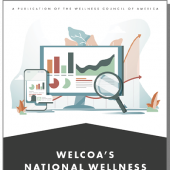Wellness Law Attorney, Barbara Zabawa, has partnered with WELCOA to provide best practices when it comes to the legal landscape of your wellness program. In this session, we will discuss whether and when workplace wellness program vendors (including broker/consultants) bear legal risk when administering corporate wellness programs, and when the employer bears that risk. We…
View Resource





